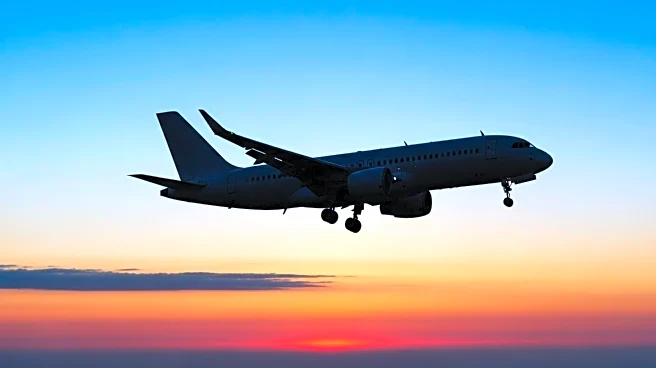What's Happening?
Air Niugini has initiated a significant fleet renewal program with the introduction of its first Airbus A220-300 aircraft. The Papua New Guinea flag-carrier plans to acquire eight A220-100s from Airbus and lease three A220-300 models from Azorra. The fleet expansion aims to replace the airline's aging Fokker 70 and 100 aircraft. The inaugural flight took place on October 4, departing from Jacksons Airport in Port Moresby to Lae, mirroring the airline's first flight in 1973. The A220 aircraft will serve domestic routes during the day and switch to shorter international sectors at night, enhancing connectivity and operational efficiency.
Why It's Important?
The introduction of the A220 fleet is a strategic move for Air Niugini, promising improved fuel efficiency and operational capabilities, particularly on shorter runways. This is crucial for Papua New Guinea's challenging terrain and weather conditions. The fleet renewal is backed by a K3 billion investment from the government, highlighting its commitment to enhancing national air services. The new aircraft will not only boost domestic travel but also strengthen international routes, supporting business and promoting national unity. The transition to newer aircraft is expected to reduce emissions and operational costs, benefiting the airline and its passengers.
What's Next?
Air Niugini plans to complete the fleet renewal by 2028, with additional A220 aircraft arriving by the end of 2025. The airline will gradually phase out its older Fokker aircraft, improving service reliability and environmental impact. The government’s investment indicates ongoing support for the airline's expansion and modernization efforts. As the new fleet becomes operational, Air Niugini is likely to explore further international route expansions, leveraging the A220's range and efficiency.
Beyond the Headlines
The fleet renewal could have broader implications for regional aviation, setting a precedent for other carriers in similar geographic and economic contexts. The focus on fuel efficiency and operational adaptability may influence future aircraft procurement strategies in the region. Additionally, the government's substantial investment underscores the importance of aviation in national development and connectivity.











